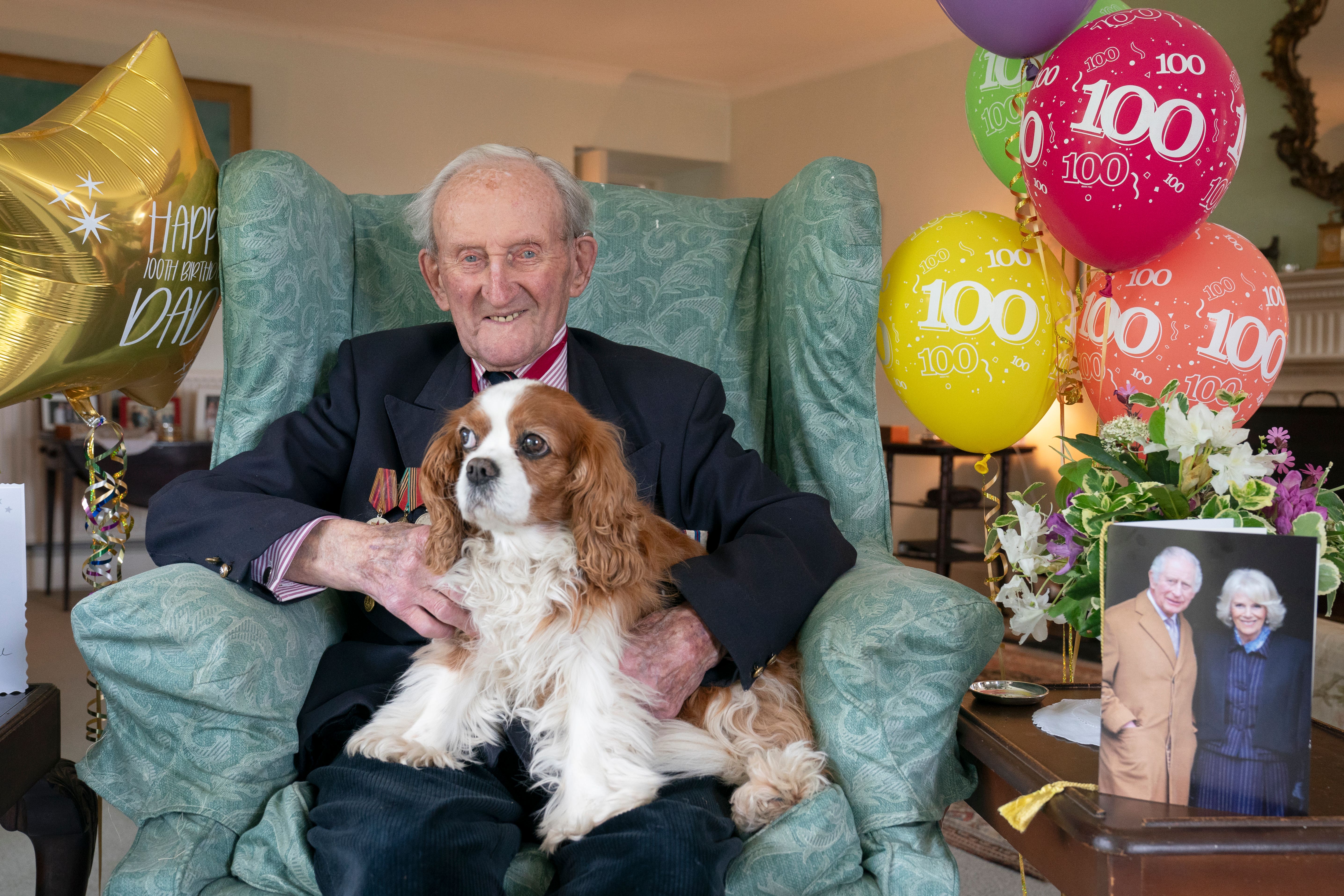Former Navy chief recalls surviving Nazi raid as he celebrates 100th birthday
Vice-Admiral Sir Thomas Baird has marked the milestone with his family in South Ayrshire.

A former head of the Royal Navy in Scotland has celebrated turning 100 – and recalled surviving a Nazi raid on the Arctic Convoy days before his 18th birthday.
Vice-Admiral Sir Thomas Baird was born in Canterbury, Kent, on May 17, 1924, the youngest of five children in a military family, but he said he wanted to “live a separate life” and decided to go into the Navy, enrolling in Dartmouth College in Devon aged 13.
He celebrated his 100th birthday on Friday with a family dinner party with his two children and their spouses, and attributed the secret to his longevity to keeping a strict routine.
Sir Tom’s 41-year Navy career began aged 17 when he served as a midshipman, a sailor of the lowest rank, on HMS Trinidad as part of the Arctic Convoy – a gesture of support to the Soviet Union in 1941 after Hitler breached a treaty of non-aggression made two years earlier.
The route was treacherous due to its proximity to Nazi-occupied Norway and because of the conditions, with ice which formed around the ship’s mast having to be removed by sailors using a blowtorch as it caused so much instability.
HMS Trinidad, which was sailing to undergo maintenance, was attacked by Nazi warplanes after leaving Murmansk, Russia, with 750 evacuated and 50 killed before it was scuttled by British destroyers prior to dawn on May 16, 1942.
Sir Tom said: “The Trinidad sank the day before my 18th birthday, nobody was thinking about giving me a birthday party. It was flat calm in the Arctic and the ship was evacuated about midnight – it was bright daylight, because it was sunk in May, 82 years ago.
“The destroyers torpedoed the ship so it sank in a ball of flames. While we were waiting we were sent down to open the hatchets so the Germans couldn’t pick up secret information, we were taken off the ship by the last destroyer.
“I saw the ship going down – the last bit was the stern with the propellers going down. My friend took a picture on a Brownie camera.”
The then teenager was evacuated to Iceland and then returned to Greenock, Inverclyde – making the journey home still wearing a sealskin hat.
He recalled his mother berating him for losing his luggage before sending him off to rejoin the Navy in Chatham, Kent.
Sir Tom, who has five grandchildren and 10 great-grandchildren, retired just before the Falklands War in 1982 and enjoyed playing golf, spending time with his family and was also chairman of the Erskine Hospital for veterans, in Renfrewshire.
I don't have any medicines that I take regularly. I have no food between meals and I sleep from 11pm until 6am. I don't do any special exercises
Of the 44 boys in his term at Dartmouth, He said around 18 of them were killed in their first postings in 1941 aged 17.
Sir Tom said: “I always thought I was one of the lucky ones – to have survived being sunk once, when most of my colleagues were killed.”
He moved to Scotland permanently in 1965, after meeting his wife Angela, who was from Symington, South Ayrshire – where he still lives.
His career peaked in 1979 when he became Flag Officer, Scotland and Northern Ireland – the head of the Royal Navy there – and he hosted guests including US president Richard Nixon and diplomat Henry Kissinger.
Reflecting on his long life, widower Sir Tom said: “I have always been against the government and my parents, and everybody else – I liked to live a separate life.
“Most of my older relatives had been in the Army but nobody had been in the Navy, so I decided to join – I couldn’t join the RAF as it hadn’t been invented yet. I did war service in the UK, the Mediterranean and in the Far East.”
He keeps a strict routine, which he said is his secret to longevity, and is devoted to his dog Victoria.
Sir Tom said: “I don’t have any medicines that I take regularly. I have no food between meals and I sleep from 11pm until 6am. I don’t do any special exercises, like PT, runs or the gym.”
Bookmark popover
Removed from bookmarks